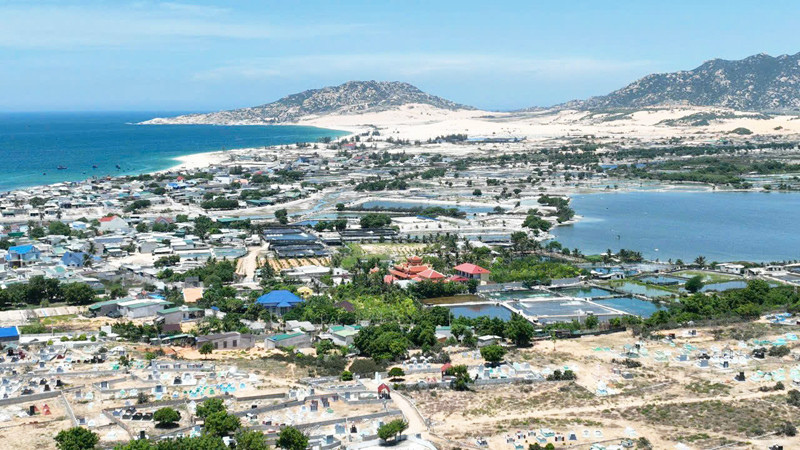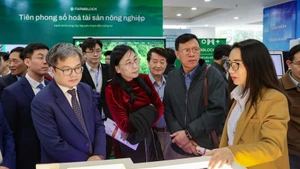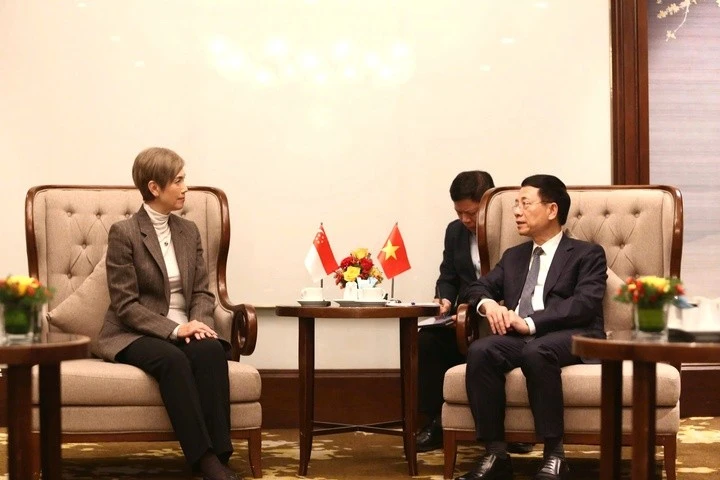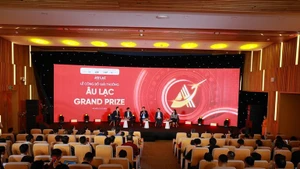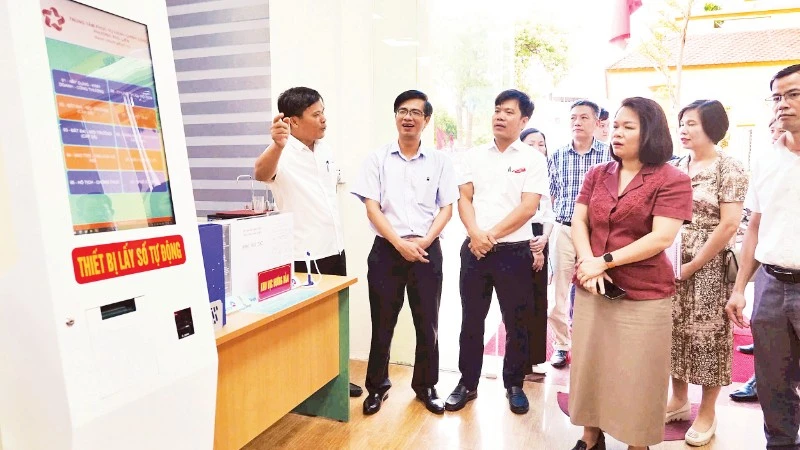According to Dr Tran Chi Thanh, Director of the Viet Nam Atomic Energy Institute, nuclear power is not merely an option but an objective requirement for developing a strong, prosperous and sustainable Viet Nam, as it offers advantages far beyond other energy sources, such as: ensuring national energy security; serving as a key source to replace fossil fuels and reduce CO2 emissions for the Net Zero target; promoting the development of scientific-technological capacity, technological foundational and high-tech industries of the country; and serving national defence and security.
Viet Nam is now facing a dual challenge: ensuring rapid economic growth, striving to reach over 8% in 2025 and approaching double-digit growth in the 2026–2030 period, while maintaining the commitment to net zero emissions by 2050 under the Glasgow Climate Pact at COP26.
To achieve this goal, the energy sector is compelled to transition. Electricity demand is expected to increase 1.5 times to meet the needs of high-tech industry, urbanisation and consumption. In this context, Viet Nam requires a clean, large-scale, and stable year-round energy source, with nuclear power being the strategic solution.
Globally, the revival of nuclear power is shown through the COP28 commitment, where 22 countries, including the US, Japan and the European Union (EU), pledged to raise global nuclear capacity to 1.2 billion kW by 2050, nearly triple the current figure. More than 80 small modular reactor (SMR) designs are under development, with four already under construction.
Technology corporations such as Microsoft, Google and Amazon are also investing in nuclear power to secure energy for artificial intelligence data centres. Recently, US President Donald Trump signed an executive order to promote nuclear power, paving the way for a new wave of investment.
In Viet Nam, the National Assembly has recently passed the amended Atomic Energy Law, completing the legal framework for safe and sustainable management and development of the atomic energy sector. The law not only provides a foundation for developing nuclear power but also strongly promotes the application of radiation technology in healthcare, agriculture and industry, contributing to spreading the benefits of clean technology into daily life.
Notably, the law introduces comprehensive provisions on the lifecycle management of nuclear power plants, from construction and operation to closing; strengthening inspections, ensuring safety, and handling waste; while emphasising the localisation of technology, training of high-quality human resources, and promoting digital transformation in management. These steps reflect an approach that does not trade the environment for growth but instead aims for a transparent and efficient nuclear ecosystem.
According to guidance from the International Atomic Energy Agency (IAEA), ensuring safety and security in nuclear energy development must be managed by a single state authority, in compliance with international standards, and overseeing the entire lifecycle of the plant. In Viet Nam, this role is assigned to the Viet Nam Agency for Radiation and Nuclear Safety (VARANS), which is responsible for independent supervision, inspection and comprehensive control of nuclear power development.
In terms of technology, Viet Nam has conducted research into reactor technology, focusing on two main directions: the generation III+ light-water reactor VVER-1200 with a capacity of over 1,000 MW, and the small modular reactor (SMR) with a capacity under 300 MW.
Following the adoption of the amended Atomic Energy Law, the Ministry of Science and Technology and relevant ministries are gradually completing technical and organisational conditions to be ready for the safe and effective application of atomic energy.
These include: building and improving legislation on atomic energy to establish a comprehensive and consistent legal corridor for management and sustainable development of the sector; strengthening the overall capacity of the national radiation and nuclear safety authority and relevant state management agencies. It also ensures radiation and nuclear safety for Ninh Thuan 1 and 2 Nuclear Power Plants and the research reactor in Dong Nai.
Dr Tran Chi Thanh stated that, as the core scientific and technological organisation leading and presiding over national strategic tasks, in the coming period the Viet Nam Atomic Energy Institute will focus on research, consultancy, and support in science and technology, design, and safety for Ninh Thuan 1 and Ninh Thuan 2 Nuclear Power Plants; research, design, absorption, and mastery of small modular reactor technology; at the same time, research technology, enhance localisation capacity in the design and manufacture of equipment for nuclear power plants, operation, maintenance, and repair.
Nuclear power will be developed on the basis of advanced technology, fully ensuring international safety regulations and standards, in line with the orientation of sustainable economic development and global integration.
